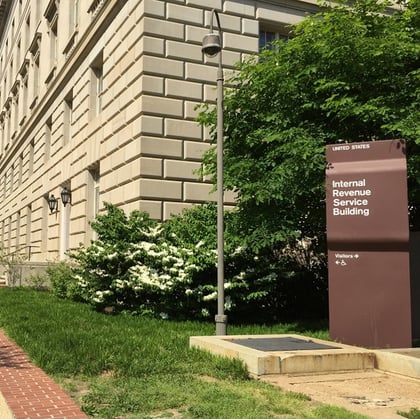What You Need to Know
- Inflation Reduction Act funds helped the agency reach several milestones.
- In the 2023 tax filing season, the agency answered 3 million more calls.
- The IRS also made 700 new hires and opened taxpayer assistance centers.
The Internal Revenue Service said Wednesday that it has reached several milestones — including new hires and shorter wait times — thanks to funds provided by the Inflation Reduction Act, which was signed into law by President Joe Biden one year ago.
As part of its Paperless Processing Initiative, the agency said it has scanned 225 times more forms than in 2022 and enabled taxpayers to reply to an additional 51 forms and letters online.
To cut down on periods of high call volume, the IRS’ customer callback option will now be available for up to 95% of callers seeking live assistance, the agency said.
‘Dramatically’ Improved Service
Inflation Reduction Act resources also helped the IRS “dramatically” improve service in the 2023 filing season, with an 87% level of service on its main taxpayer help line, the agency reported.
Through the end of the 2023 filing season, the IRS said it:
- Answered 3 million more calls.
- Cut phone wait times to three minutes from 28 minutes.
- Served 140,000 more taxpayers in person.
- Digitized 80 times more returns than in 2022 through the adoption of new scanning technology.
- Cleared the backlog of unprocessed 2022 individual tax returns with no errors.
- Launched two new digital tools.
- Enabled a new direct-deposit refund option for taxpayers with amended returns.
Paperless Processing
The IRS also used funds from the Inflation Reduction Act to launch its Paperless Processing initiative.
The IRS said on Aug. 2 that it tapped its $80 billion budget boost under the Inflation Reduction Act to accelerate paperless processing for the 2024 and 2025 tax filing seasons.
The “ambitious plan” will ensure that by filing season 2024, “taxpayers will be able to go paperless if they choose to do so,” the IRS said, and by filing season 2025, “the IRS will achieve paperless processing digitizing all paper-filed returns when received.”
In effect, the IRS said, “this means all paper will be converted into digital form as soon as it arrives at the IRS.”









 August 16, 2023 at 11:41 AM
August 16, 2023 at 11:41 AM











